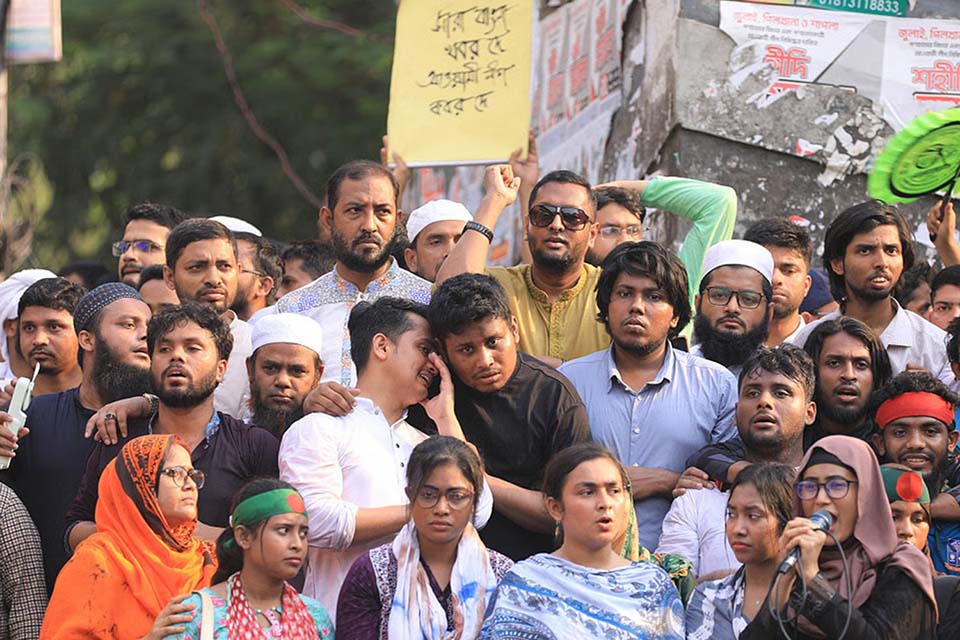May 13, 2025
DHAKA – In moments of national transition, the desire to undo the past through dramatic gestures is tempting. After years of repression, injustice, and fear, many understandably crave a break from the old order—a symbolic act that declares, “never again.” For some, banning the Awami League (AL) appears to be that break.
This decision, driven by years of repression and authoritarian rule, may seem like poetic justice to some. But it carries a heavy price: the risk of turning democratic renewal into another round of political vengeance.
There is no denying the extent of damage the AL has done over the last 15 years, particularly from January 5, 2014. Many citizens hoped that, at the very least, AL leaders would publicly acknowledge their wrongdoing, express regret, and ask for forgiveness. But instead of remorse, what has come is provocation—from exile, through messaging that seeks to inflame rather than reconcile. The public anger, already deep, has only intensified. And yet, even in the face of this resentment, we must ask whether banning the party outright solved the problem of punishing the individuals who committed crimes against humanity.
Make no mistake, the AL has much to answer for and it must be held accountable for its brutal actions and those responsible must be punished.
From the 2014 “midnight election” to the brutal crackdown on student protesters during the July uprising of 2024, the party’s leadership has repeatedly flouted democratic norms and trampled on human rights. There is widespread and legitimate demand for punishment.
Let’s begin with the obvious: the Awami League is not merely a political party—it is a multigenerational institution. Millions of people across the country supported it in the past, many of them born into families that have been part of the party for decades. What will happen to these people in the new reality? How will they react is the important question.
What’s more, a ban gives the AL exactly what it needs to recast its image—from oppressor to oppressed. The same party that wielded state power to silence dissent now gets to claim victimhood.
Then there is the legal dimension. Bangladesh is a signatory to the International Covenant on Civil and Political Rights (ICCPR), which clearly states that restrictions on political rights must meet the tests of legality, necessity, and proportionality. A blanket party ban—the most extreme form of political restriction—can only be justified when all other less restrictive means have demonstrably failed. The state still has powerful tools at its disposal: it can prosecute individual AL leaders credibly accused of crimes, provide protection for witnesses and activists, disband violent factions, and even impose targeted political sanctions. These mechanisms strengthen justice.
Justice demands that we punish the guilty—not everyone who are not directly involved with them. Collective punishment, even when driven by righteous cause, undermines the very legitimacy of transitional justice. History shows that dissolving parties rarely heals nations. It more often deepens fractures, stokes grievances, and makes martyrs of those who once stood accused.
Supporters of the ban may point to the student movements, particularly the July uprising, as moral justification. And indeed, the courage of Bangladesh’s young protesters deserves admiration. They braved arrests, bullets, and surveillance to demand change. But no matter how noble, we should not allow heroism to override the rule of law, as the July uprising was meant to restore the rule of law and impart justice. If we undermine democratic process to respond to just demands, we risk destroying the very ideals we’re trying to restore.
Perhaps worryingly, this move sets a precedent. Today, it’s the AL. Tomorrow, it could be any party deemed “unacceptable.” Once the door to blanket political bans is opened, it becomes easier to silence dissent and concentrate power under the guise of legality.
Bangladesh deserves more than symbolic ruptures. It deserves the hard, principled work of imparting justice and institution-building. Accountability must replace impunity. We must also ensure political pluralism. If we are to escape our past, we must choose justice and democracy.
Mohammad Al-Masum Molla is a journalist at The Daily Star. He can be reached at masumjrn@gmail.com.
Views expressed in this article are the author’s own.

